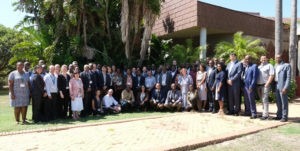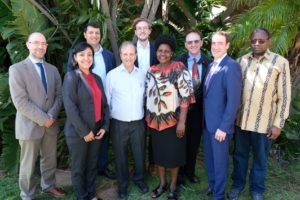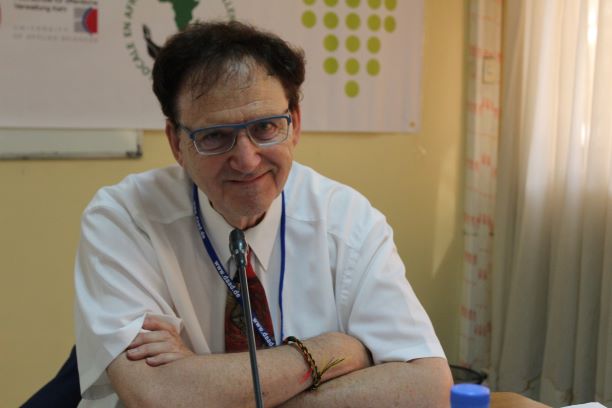By Gillian McAinsh, Port Elizabeth

An international project kicks off this week at Nelson Mandela University to develop and put into action digital learning strategies across Africa.
The Digital Initiatives for African Centres of Excellence – or Digi-Face – aspires to open up educational access by linking geographically separate participants with user-friendly tools and technology.
The kick-off meeting from March 3-6 in Port Elizabeth has drawn delegates from universities in Niger, Senegal, Kenya, Mali and other African countries as well as Germany.
Prof Dr Ewald Eisenberg, representing project lead partner Kehl University in Germany, said the plan was to roll out Digi-Face over the entire continent.
“Sometimes there are thousands of kilometres between a supervisor and student, which makes learning complicated. There also may be unrest, or difficulties with travel,” Eisenberg said.
He listed e-learning (electronic) and m-learning (on a mobile device) as well as blended learning (a combination of traditional and digital) as possible solutions to the challenges of education in Africa.
“Blended learning is the most useful because we can adapt the various learning scenarios to what people really need,“ Eisenberg said.
However, despite high demand and motivation for e-learning, a Kehl University survey showed that very few African universities were able to access this due to lack of basic equipment and a stable internet connection.
This gap has to be bridged because, as Mandela University Learning and Teaching deputy vice-chancellor Prof Cheryl Foxcroft noted at the conference, “increasingly, if students cannot learn in digital spaces then we are not doing our job”.
Project Leader of the East and South African German Centre of Excellence for Educational Research Methodologies and Management Prof Paul Webb, also based at Mandela University, said it was important to build capacity in Africa so that all its universities could use the relevant tools.
“Our role is also to train trainers on aspects of using apparatus and digital assets provided by the project within their own areas of expertise,” Webb said. “We want to make life easier, not more difficult. And no matter what we do digitally, it depends on the content, in other words, it depends on human beings!”
German academic Prof Bernd Siebenhuener from Carl von Ossietzky University Oldenburg said Digi-Face would offer a variety of modules across five areas or “work packages”.
“The idea is to develop skills for everyone at the universities, not only the IT people, and that is why we will offer a range of courses. Digi-Face is for everyone,” Siebenhuener said.
Although Digi-Face has an open-source policy where access to resources is free, this week’s conference also is looking at how to generate revenue to ensure sustainability.
The German Academic Exchange Services (DAAD) – with funds from the German Federal Foreign Office – is the sponsor of Digi-Face, and Mandela University is one of the leading drivers of the project in Africa.
Mandela University will produce at least six generic modules for post-graduate students and academics on research supervision and online learning and teaching for all 11 of the DAAD funded Centres of Excellence in Africa.

Members of the Digi-Face Steering Committee (from left to right): Prof Andreas Pattar, Nilly Chingaté Castaño, Junes Arfaoui, Prof Paul Webb, Merlin Kull, Dr Susan Kurgat, Prof Ewald Eisenberg, Prof Bernd Siebenhuener, Prof John Chang’ach
You must be logged in to rate posts.



